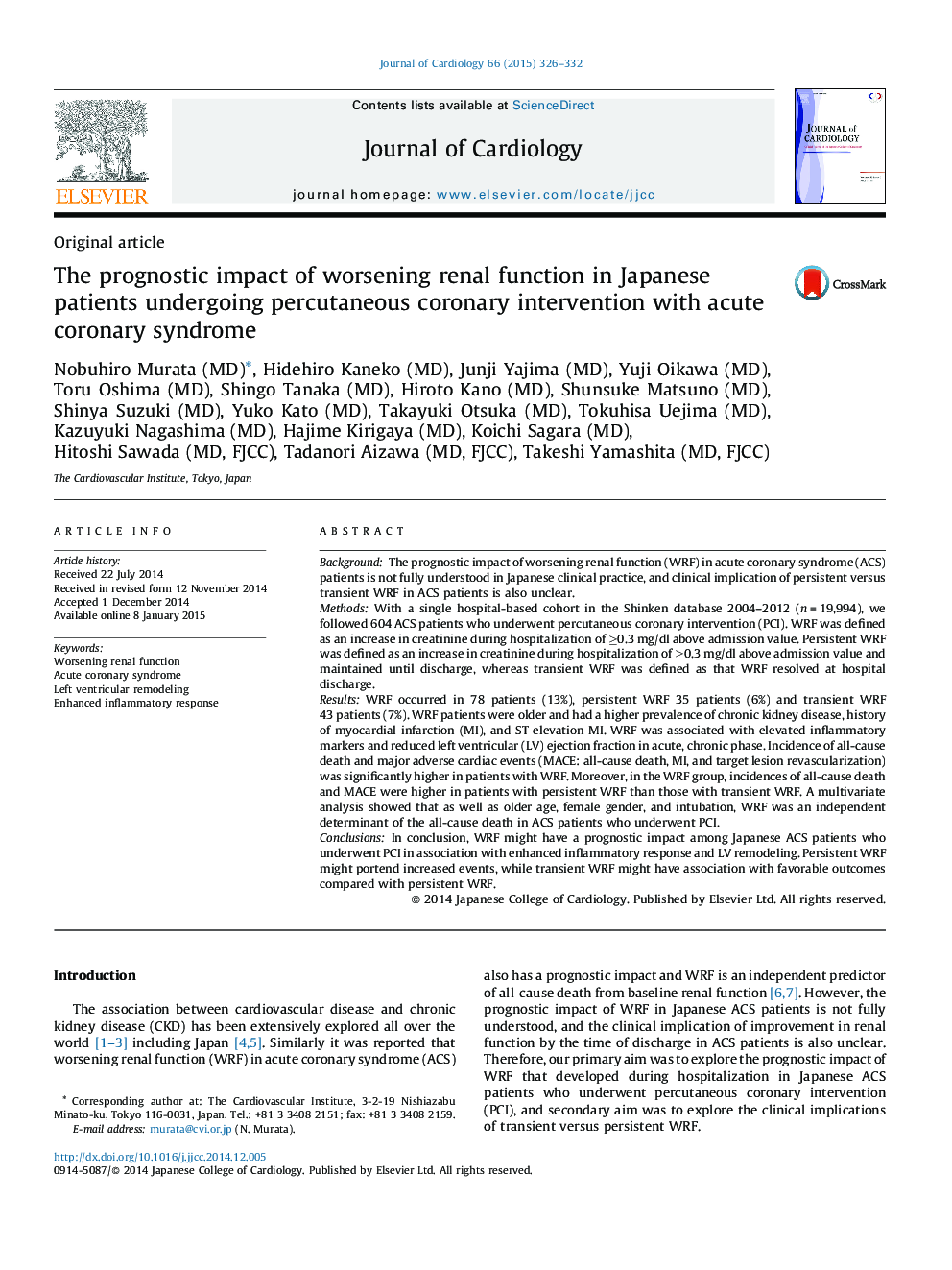| Article ID | Journal | Published Year | Pages | File Type |
|---|---|---|---|---|
| 2962927 | Journal of Cardiology | 2015 | 7 Pages |
BackgroundThe prognostic impact of worsening renal function (WRF) in acute coronary syndrome (ACS) patients is not fully understood in Japanese clinical practice, and clinical implication of persistent versus transient WRF in ACS patients is also unclear.MethodsWith a single hospital-based cohort in the Shinken database 2004–2012 (n = 19,994), we followed 604 ACS patients who underwent percutaneous coronary intervention (PCI). WRF was defined as an increase in creatinine during hospitalization of ≥0.3 mg/dl above admission value. Persistent WRF was defined as an increase in creatinine during hospitalization of ≥0.3 mg/dl above admission value and maintained until discharge, whereas transient WRF was defined as that WRF resolved at hospital discharge.ResultsWRF occurred in 78 patients (13%), persistent WRF 35 patients (6%) and transient WRF 43 patients (7%). WRF patients were older and had a higher prevalence of chronic kidney disease, history of myocardial infarction (MI), and ST elevation MI. WRF was associated with elevated inflammatory markers and reduced left ventricular (LV) ejection fraction in acute, chronic phase. Incidence of all-cause death and major adverse cardiac events (MACE: all-cause death, MI, and target lesion revascularization) was significantly higher in patients with WRF. Moreover, in the WRF group, incidences of all-cause death and MACE were higher in patients with persistent WRF than those with transient WRF. A multivariate analysis showed that as well as older age, female gender, and intubation, WRF was an independent determinant of the all-cause death in ACS patients who underwent PCI.ConclusionsIn conclusion, WRF might have a prognostic impact among Japanese ACS patients who underwent PCI in association with enhanced inflammatory response and LV remodeling. Persistent WRF might portend increased events, while transient WRF might have association with favorable outcomes compared with persistent WRF.
